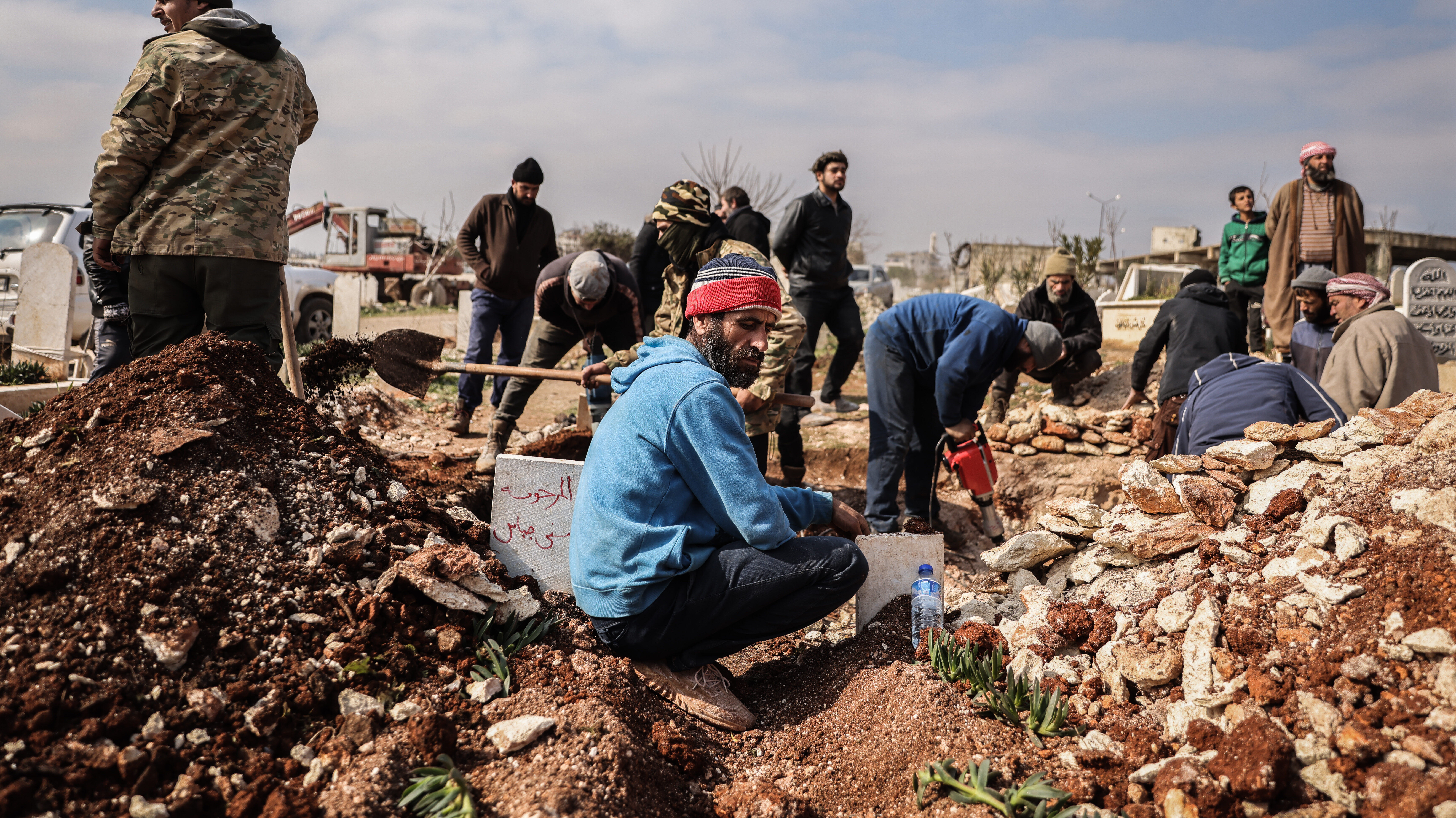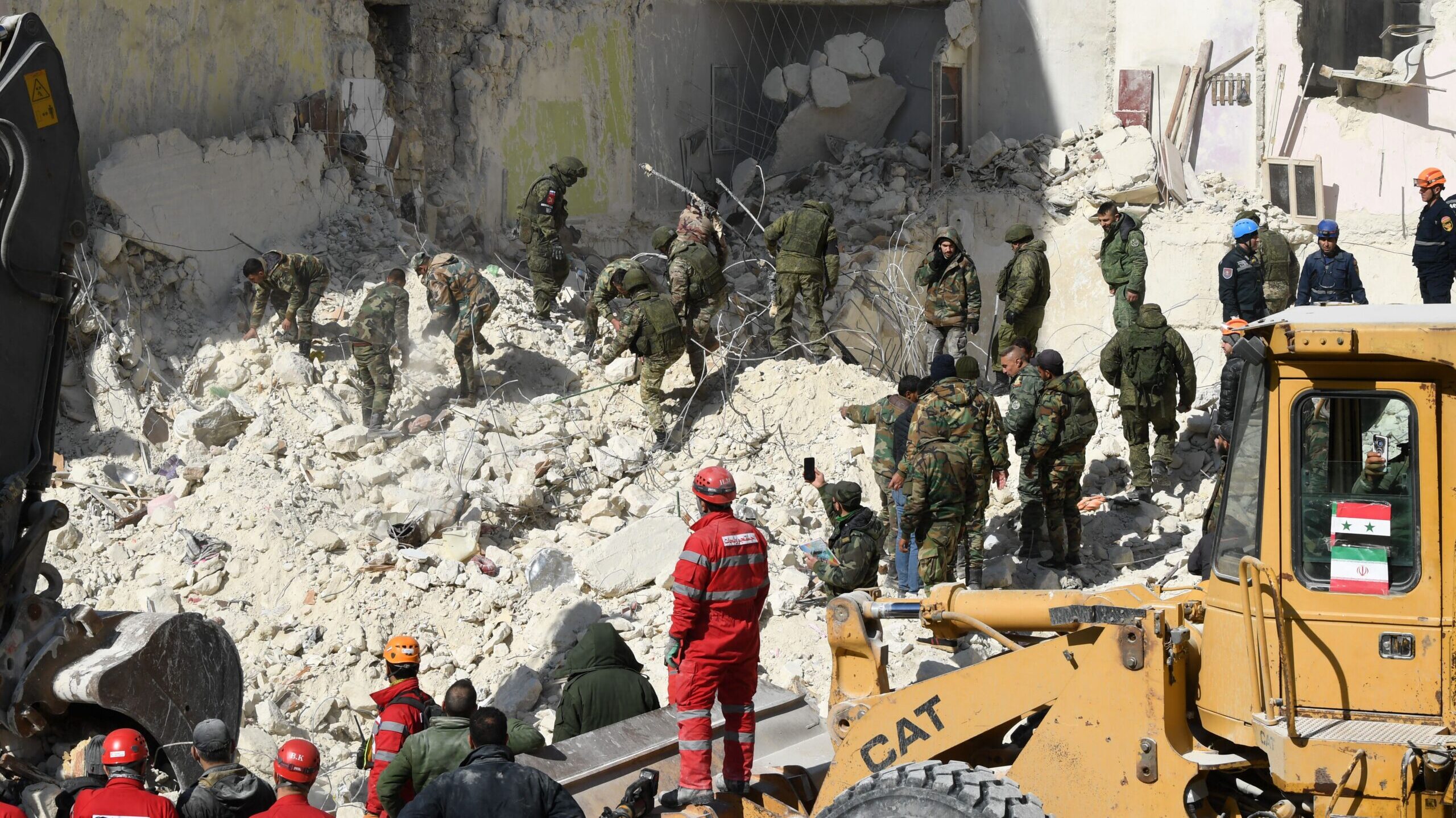War-ravaged Syria Sees Economy Further Decimated by Earthquake
World Bank estimates that the direct physical damage from the February 6 quake stands at $5.1 billion, or about 10% of the country's current GDP, and locals say international aid is not sufficient
The earthquake that struck the Syrian-Turkish border on February 6 claimed tens of thousands of lives and left many more injured and without shelter, and for Syria, struggling with a civil war now in its 12th year, the financial burden also weighs heavy.
The World Bank reported Friday that the direct physical damages in Syria are an estimated $5.1 billion, which corresponds to about 10% of the country’s GDP.
The northwest region of the country was the most affected by the disaster, leaving over 6,000 dead, thousands more missing, and hundreds of thousands homeless, with significant amounts of residential and non-residential buildings partially or totally destroyed.
The damages, according to the report, were seen in four of the country’s governorates that are currently home to more than 10 million people. Aleppo, already decimated by heavy fighting over the past decade, sustained the most damage, about 45% of the destruction, followed by Idlib and Latakia with 37% and 11% respectively.
Even before the earthquake, Syria’s economy was already dramatically harmed as a result of the ongoing civil war, says Ecaterina Matoi, Program Director at Middle East Political and Economic Institute MEPEI in Bucharest, Romania.
In fact, Matoi tells The Media Line, the economic effect of the war has been devastating. In 2010, one year before the conflict began, Syria’s GDP was $252.5 billion, even higher than Israel’s GDP for the same year ($ 238.4 billion). However, she notes, as a result of the conflict, Syria’s GDP has seen a significant drop, and the impact of the earthquake will only exacerbate this more.
Dina Ramadan, a Syrian researcher and co-founder and CEO of Al-Salam Institute for Women’s Studies, tells The Media Line that there is no way to predict how long it will take for Syria to recover from this economic and human catastrophe.
“But one thing is for sure,” she says, “it will take a very long time.”
Ramadan points out that over a decade of ongoing war has severely damaged the country’s infrastructure. She says that this is true in the case of both the areas under Syrian President Bashar al-Assad’s control and “the opposition-held areas which are still frequently targeted by the Assad regime.”

A Syrian man sits next to a grave during the burial in Idlib of victims of the devastating Turkey-Syria earthquake, Feb. 13, 2023. (Anas Alkharboutli/picture alliance via Getty Images)
Matoi believes that should it take 10 years to stabilize the economic situation in Syria, it would take the country decades more to completely recover. “The recovery period will be more than 80 years, after which they could focus on paying the national debt,” she says.
Ahmad Al-Mahmoud (a pseudonym), a humanitarian worker from the city of Idlib in northwestern Syria, tells The Media Line that in addition to the physical damage, the quake unleashed a series of repercussions that further worsened the economic situation.
After the earthquake, he says, the crossings with Turkey were closed for several days, which led to a great demand for all food products, building materials, tents, and other commodities. This, he explains, led to a dramatic rise in prices while the cessation of all work caused a lack of income in the population.
In addition to the huge physical damage and the economic impact of the natural disaster, the efficiency of international aid was very low, further delaying the country’s recovery.
In the first few days after the earthquake, says Al-Mahmoud, the closure of the crossings with Turkey meant there were only basic grassroots initiatives that functioned with the help of organizations that owned emergency warehouses in Syria.
After a week, when the crossings with Turkey reopened, some aid began entering the areas that most needed it, but it was not sufficient for all the affected people, he explains.
Even today, says Syrian translator and activist Ahmad Hallak, the local infrastructure and medical facilities are not equipped to respond to such catastrophes.
Ramadan points out that after the Bab Al Hawa border crossing was opened in the aftermath of the earthquake, “the UN Secretary-General [António Guterres] opted to wait for Assad’s permission for opening additional crossing points, [such as] Bab Al Salamh and al Ra’ee.”
For that reason, she notes, “the UN has been accused by many Syrians of politicizing aid, and they feel that both the UN and the international community have severely let them down.”
Eight days after the quake, Guterres told reporters that aid “must get through from all sides” in Syria and the funding would cover an initial period of three months.
“The Syria effort brings together the entire UN system and humanitarian partners and will help secure desperately needed, life-saving relief for nearly 5 million Syrians – including shelter, healthcare, food and protection,” he said.
But Hallak tells The Media Line that the help that is currently coming in from the UN and different international NGOs via Turkey is not sufficient.
“There are so many families that didn’t receive any kind of aid,” he says.


